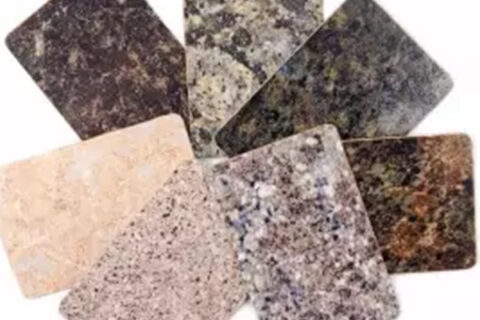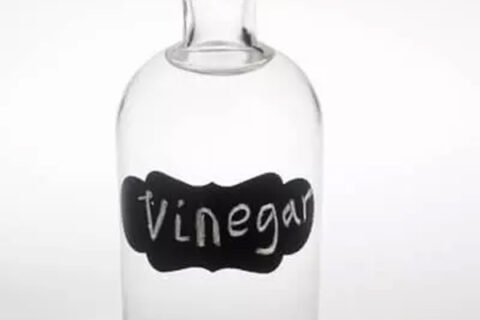Granite Countertop Sealer: Which Is the Best?
Granite sealers can help protect countertops from damage while providing an attractive glossy sheen. But how do you know which type of sealer is best for your particular needs? Here’s everything you need to know about granite countertop sealers, so you can make an informed purchasing decision.
Types of Sealers
Granite is a significant investment, so homeowners strive to keep it in excellent shape. That means regularly applying a quality sealer. With that said, there are a lot of sealer options that provide varying benefits based on your goals and individual needs.
Penetrating Sealers
Impregnating or “penetrating” sealers protect granite by plugging up the porous surface with hardening resins. Available as water- and solvent-based products, these sealers soak into the pores and then leave behind hardening resins as the product dries.
Because they do most of their work beneath the surface, penetrating sealers don’t protect much against scratching and etching from acidic liquids and foods. These sealers are also regarded as stain-resistant and not necessarily stain-proof.
Enhancing Sealers
Older granite can often benefit from enhancing sealers. These products are designed to enrich the look of a countertop by soaking into the surface to create a wet, shiny appearance The sealer reinvigorates the stone’s appearance by helping it reflect light. This creates a shinier, yet darker, surface appearance. Most enhancing compounds will also provide a small amount of sealant protection, much like penetrating sealer.
Topical Sealers
These products are designed to add a layer of protection to only the outermost layer of the stone. They create a glossy finish that protects the stone from dull spots, scratches and other undesirable flaws. They tend to work best on rougher stone surfaces, which have rugged textures that give the topical sealer a “tooth” that promotes adhesion for long-lasting protection.
Bear in mind that topical sealers aren’t always ideal for natural stone countertops because they don’t adhere as well to smooth surfaces. They can also keep moisture from escaping the granite, causing cracking as the moisture tries to escape. If you choose to use a topical sealer, make sure it is specifically made for countertops.
How to Choose a Sealer
Besides the different kinds of sealers, there are other important features to look for in a quality sealer. In this section, we’ll outline the most crucial things to consider when shopping for the best sealers for your granite surfaces.

Form
Granite sealers are available in waxes, liquids, sprays and polishing compounds. Liquids tend to penetrate better, enhancing protection from within. Polishing compounds are typically thicker and take a bit more work to apply. Much like waxing a car, these compounds must be worked well into the stone to provide even protection.
Finish
While all granite sealers are designed to help protect surfaces, many also provide a nice shiny finish. A standard sealer will help generate a shiny finish that reflects more light than an unsealed surface. An enhancing sealer will create a shiny, wet look. For a brighter-looking surface, a granite polish will work best.
Polishing creates a very glossy, shiny granite surface that really stands out. Polishing also reduces the appearance of tiny scratches that reduce the stone’s light-reflecting properties.
Safety
The chemicals in granite sealers aren’t any more dangerous than those used in most household cleansers. Once they cure, most every sealer should be safe to touch and prepare food. With that said, some take longer than others, so bear this in mind when choosing a particular product.
Application
When choosing a sealer, it’s good to consider how the product is applied. While spray bottles can work well for some countertops, polishes work better depending on your goals. Also, some sealers have to sit on the granite longer than others to soak deep within the stone.
Versatility
In homes with varying stone or granite surfaces, it may be best to select a stone sealer that works on multiple surface types. Most importantly, however, double-check to make sure the product works specifically on granite surfaces.
Granite has different characteristics from marble and sandstone, but certain products can seal them all with one formula. Whatever you choose, just be sure to follow the directions. It can be an expensive mistake to spot a stain because you missed a step. This is one big reason why so many homeowners decide to have their granite countertops treated by reputable professionals.
Has your aging countertop seen better days? It might be best to replace the surface with a new natural stone countertop from Rock Solid Custom Granite.
Rock Solid has developed a hard-won reputation for being the most skilled and reputable granite counters company. We have the largest selection of natural stone countertops, from granite and soapstone to travertine, limestone, onyx, marble and quartz. Our skilled specialists can match your needs with the exact right product, whether you need practical durability, a stunning finish or understated elegance. Employee-owned, our company never outsources key jobs to subcontractors. When homeowners work with us, they can expect stunning natural stone countertops that stand the test of time.


